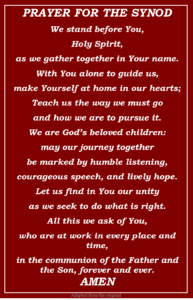4 December 2022
Isaiah 11:1-10 Romans 15:4-9 Matthew 3:1-12
Theme: Keeping Hope Alive
Many of you, I’m sure, have seen Franco Zeffirelli’s classic film, Jesus of Nazareth. Though it is many years ago since I saw it, a striking image from the movie has remained with it: ‘A future without hope is like a night without stars’. It is spoken by Yehuda, the rabbi, as he looks forward to the birth of the Messiah. Keeping hope alive is the dominant theme of our scripture readings today and it is the context in which we must situate the urgent cry of John the Baptist in today’s gospel to ‘prepare a way for the Lord, make his paths straight’ (Mt 3:3).
An Irish liturgist, writing on the Advent Liturgy, describes it as one continuous song of hope. The spirit of Advent is admirably summed up in one of the season’s typical antiphons: ‘Lift up you eyes, Jerusalem, and see the power of the King. Behold the Saviour comes. He will free you from your bonds.’ But what is hope? It is best described as a basic human attitude: a positive attitude that includes trust and expectancy for the future, an attitude that gives us confidence and energy. In the words of the poet Emily Dickinson,
‘Hope is the thing with feathers
That perches in the soul,
And sings the tune without the words,
And never stops at all.

Hope lifts us up. It encourages us to change ourselves and our society for the better. While hope is the opposite of despair and cynicism, it is not naive about human life or blind to the reality of evil in our world. To the contrary, a hopeful attitude is only possible in an imperfect situation, a situation in need of, and open to change, a world where the future can be better than the past. If the world were already perfect, there would be no point in hope. On the other hand, if the world is simply a disaster, there is no room for hope. This is why should resist the prophets of Doom and there are a lot of them around at the present time. They are not just killjoys. More seriously, they are killers of hope.
Christianity is basically a religion of hope. It envisages a better and brighter future for all humanity and indeed for the entire order of creation – a hope based on God’s coming to dwell among us to heal, redeem, and transform our lives. The people of Israel expected this hope to be realised with the advent of the Messiah. Israel’s messianic hope is movingly expressed in today’s first reading from the prophet Isaiah. For him, the Messiah will be a wise, holy and peaceful King, ‘who will judge the poor with justice and decide in favour of the land’s afflicted’ (Is 11:4). He will put an end to conflict and bring lasting peace, a peace that will extend beyond the frontiers of humanity to the world of nature: ‘The wolf lives with the lamb, the panther lies down with the kid, calf and lion feed together, with a young child to lead them’ (Is 11:6). The word that Isaiah uses to embody this hopeful vision of a world at peace is ‘shalom’; a word with a much greater breadth and depth of meaning than we normally give to the term ‘peace’. It signifies, as the images of Isaiah suggest, not merely the absence of war or violence, but the universal presence of harmony and integrity – a world of restored relationships at every level. So we proclaim joyfully in the words of today’s responsorial psalm: ‘In his days justice shall flourish and peace till the moon fails’ (Ps 71:7).
As disciples of Jesus we believe that, with the first coming of Jesus Christ, God’s reign of justice, peace and love has begun. In Christ, God has come closer to us than we could ever have imagined. His only begotten Son became one with us. He suffered, died and rose again to unite us to one another and to the Father. Our hope for ‘a new heaven and a new earth’ (Rev 21:1) is now centred on him and on what God has done and is doing in and through him. So, while we still inhabit a world that is far from the peace envisioned by Isaiah, we do not lose heart. As St Paul reminds us in our second reading today, ‘Everything that was written long ago in the scriptures was meant to teach us something about hope from the examples scripture gives of how people who did not give up were helped by God’ (Rom 15:4).
Our hope in Christ is a hope that looks beyond the often tragic circumstances of our lives – a hope based ultimately on his resurrection, and hence a hope for new life rising from the ashes of death and decay. Such a hope is not confined by the limits of what we can achieve by our own efforts. God has faith in us even when we lose faith in ourselves. He never gives up on us for he is the ever faithful God, whose Spirit enables us to live in accord with Jesus Christ and, by our actions of justice, mercy and love, to keep hope alive in our struggling world.
Michael McCabe SMA, Cork, November 2022
To listen to an alternative Homily from Fr Tom Casey of the SMA Media Centre, Ndola, Zambia please click on the play button below.
|
|

